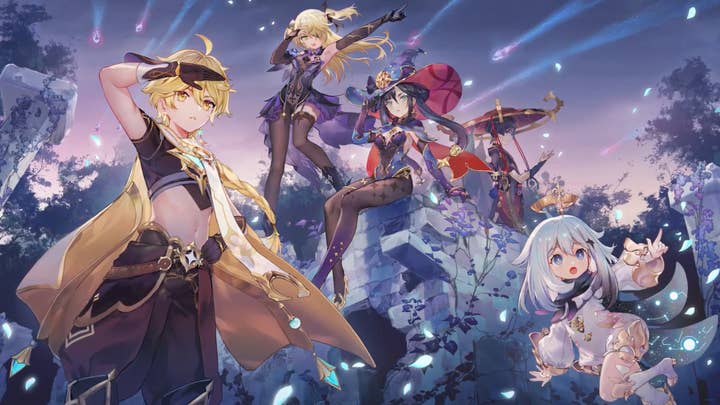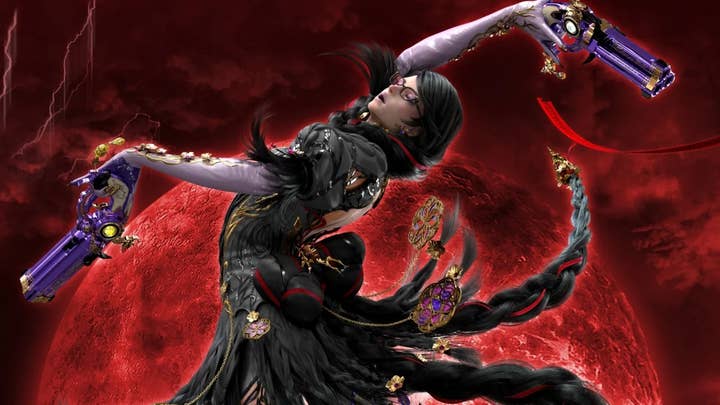The Bayonetta 3 pay dispute highlights the precarious conditions voice actors work under | Opinion
Missing public knowledge about the complexities of the VO industry led to unhelpful discussion about what good working conditions should look like
When we hear the word 'actor', we often think of celebrities on the red carpet, of millionaires of pull franchises with their star power, and of the glittering but opaque world of the entertainment industry. It's this conception that may make it difficult to believe that voiceover talent, for all that they have the same skills as on-screen actors, make much less money.
However, due to notoriously poor pay transparency in the games industry and the creative industries at large, most of the public may not even know that, or even what a voice actor's job in games entails.
Last weekend, actress Hellena Taylor took to Twitter and revealed that due to a payment dispute with developer PlatinumGames, she would not be reprising the role of Bayonetta in Bayonetta 3. Taylor said that this was due to her allegedly being offered a flat rate of $4,000 for her work on the game, an offer that she felt was "insulting" due to skill as an actress, her previous contributions to the series and the franchise's popularity with players.
No matter what you may think of the dispute between Taylor and PlatinumGames, her points line up with what voice actors have been saying for years
A report by Bloomberg disputes Taylor's account. According to contract documents Bloomberg had access to, Taylor was allegedly offered the sum per session and negotiations failed due to Taylor insisting on an unnamed six-figure payment instead.
While we may never know what exactly happened, the situation itself and the resulting discussion, in op-eds as well as social media, makes it clear that not only do many people have no idea under what conditions the games they love are made, we also often struggle to qualify the sparse information we are given. This leads to generally unhelpful social media debates on what a good rate is, because every person's needs and living standards are different, and having an opinion on social media is always free.
No matter what you may think of the dispute between Taylor and PlatinumGames, her points line up with what voice actors, the people we should actually be listening to in this regard, have been saying for years – voice acting is a precarious, notoriously underpaid part of the entertainment industries, including games.
Most games use American voice actors for their English dubs. AAA games may be dubbed in other languages such as French, Italian and German, or use actors with non-American accents depending on the setting or characters. Additionally, indie games may use actors local to the studio, but for the purpose of the argument I'm going with the conditions Taylor, as a British actress working in America and with American companies, is referring to.
Voice actors work in industries such as games and animation, providing either a character's original voice or an English dubbing voice for media produced in a different language such as Japanese. In the US, voice actors are generally either members of the labour union SAG-AFTRA (Screen Actors Guild and the American Federation of Television and Radio Artists) or not, and while efforts to form unions in the games industry have increased to lead to better working conditions for developers and generally come highly encouraged, the case for actors is somewhat more complex.
Voice actors are freelancers that may or may not be part of a union for a number of reasons, and the decision may not be their own. As you can guess from how much of the games industry is unionised in general, many publishers don't offer union contracts, and even if they do, the NDAs involved often make voice actor's jobs actively more difficult, for example by not telling them what kind of game they are auditioning for, or even what characters they voice during a recording.

Generally, union membership for voice actors is encouraged for the same reasons it is everywhere else – unions hold collective bargaining power, and unions contracts not only negotiate and re-negotiate contracts for rates, but also make sure performers receive health insurance, pension payments and overtime pay. Minimum agreements ensure that no matter for how long a performer actually works for, they receive a minimum flat rate per project. There is a chance for actors to be paid use fees, a one-time fee a client pays for the continued use of a performance. Additional money an actor may make based on the revenue of a game or piece of animation are called residuals.
SAG-AFTRA rates, while they can be a bit confusing for people not working on that side of the industry, are publicly available, and its members agree to only work on projects that honour union contracts in order not to undercut each other and defeat the purpose of the union. But what to do if a lot of the projects you want to work on simply don't offer union contracts? Will the popularity an actor could gain from a successful project translate into more jobs, or jobs with better pay? Is the short-term gain of a non-union project like a role in a popular gaming franchise preferrable to the stability a union stands for?
Right now, these are questions actors have to answer for themselves, and frankly they shouldn't. While there is currently a generally agreed upon non-union rate of $250/hr (roughly the same as the union rate) and a two-hour minimum, without a union contract no company actually has to adhere to this figure, leaving non-union voice actors, just like freelancers in many other industries, susceptible to the whims of their clients. Additionally, in some US states the so-called "right to work" is in effect, allowing performers to work on any kind of project, union or not union, which essentially ends up draining the union of its bargaining power.
What your education or your manpower are worth are questions without simple answers that tug on the root of capitalism itself, but especially when many people the world over are experiencing a cost of living crisis, they are worth asking
But whether an actor is paid those $250 an hour isn't even the only question you should consider. An hourly rate of $250 may sound great, but hourly rates are really only a useful benchmark for people working a regular 9 to 5. Freelancers are paid in many different ways, and especially in the creative industries what can be accomplished in an hour, or how you spend that hour, can vary wildly.
Voice actor Ben Diskin (Kingdom Hearts, Fire Emblem) recently explained in a Twitter thread that while SAG-AFTRA members vote on rates and the hourly rate is thus something most actors could agree on, success in voice acting, like any field mostly made up of freelancers, depends on how many projects you can book, and how many hours they run for.
Earlier this year, voice actress Sara Secora (Genshin Impact, Warframe) revealed in response to the merger of anime streaming services Funimation and Crunchyroll under Sony that voice actors may not have enough work to earn money every week, and that the high entrance barrier to voice acting wasn't reflected in rates, either – particularly during the pandemic , with many actors having to invest in a home studio for example, in order to keep working. Many actors move to expensive cities such as Los Angeles to be able to do studio work for companies, convention appearances, online autograph streams and personalised voice messages – all of which are a crucial part of many actors' income.
Of course, we could also always have general discussions about who determines the worth of work in general, and in many ways people have been doing that intensely ever since the wave of resignations in the service industry and among essential workers during the pandemic. What your education or your manpower are worth are questions without simple answers that tug on the root of capitalism itself, but especially when many people the world over are experiencing a cost of living crisis, they are worth asking.
SAG-AFTRA members determined that their work was worth more than what they were getting for it during the voice actor strike between against video game companies such as Activision and Warner Bros Interactive between 2016 and 2017. At that point, the agreement companies used to hire voice actors was over 20 years old.
Even though union contracts are adjusted for inflation each year, union rates aren't the end all be all – the fact they hadn't been adjusted regularly for a period of several decades likely skewed the perception of what the work was worth and what healthy working conditions in voiceover looked like. Just because an agreement was eventually reached after 11 months of strike action doesn't mean it was actually the best possible agreement.
Against the simple truth that everyone should be paid enough to live off of something they are good at, voice actors are only left with public appeals to empathy
The right to residuals for example, which was part of SAG-AFTRA's demands during the strike, couldn't be established, leaving voice actors in most cases without the means to earn further money off the commercial success of a game, something that's completely normal for union actors in other industries, as are royalties in the games industry. It must be frustrating for voice actors to be arbitrarily treated in a different way when they are part of a large industry with a projected revenue of $197bn.
You may want to argue that a company isn't supposed to "pick up the slack," as it were, for actors who can't book regular jobs as part of their profession. Many freelancers move in industries where there is little to go around compared to the number of people actually working. Against such arguments, against the idea that making it onto a project in a highly competitive field should be worth more money, against the simple truth that everyone should be paid enough to live off of something they are good at, voice actors are only left with public appeals to empathy, which is what made Hellena Taylor's case so compelling.
Many of the people who make the things that entertain us, that have an emotional impact, the people we think of as irreplaceable because their performance is a part of something we enjoy, are often treated as replaceable when that couldn't be farther from the truth.
Developers like Night School Studio have publicly attested to the huge importance of voice acting to their games, games like Genshin Impact and Cookie Run Kingdom are even partly marketed by their voice acting talent. Voice actors often risk repercussions by discussing their working conditions, but they do it simply because public opinion is the last thing that can help their case – audiences reaching out to publishers and studios to campaign for better pay, raising awareness to working conditions in the games industry and, yes, maybe even abstaining from buying a product are all ways that can help support performers in the long run.
We regularly talk about visuals, writing and animation when discussing games, but voice actors often play an equally crucial part in bringing games to life. They deserve better.

